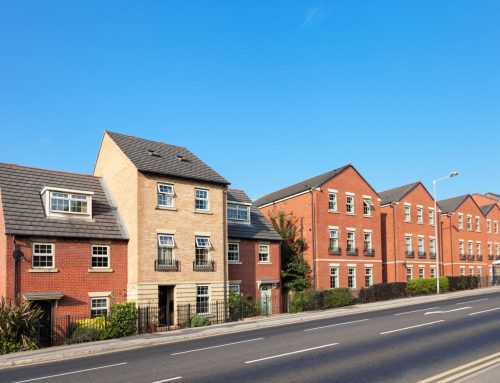Is Buy to let still worth it
Is Buy to Let still worth it? This is a question many established and aspiring buy-to-let investors are asking. Even moreso since the recent tax changes introduced by former Chancellor George Osborne. The new tax on second homes was introduced to cool the market; first-time buyers were being priced out of the property market. Therefore, by adding new taxes on property investors, the government sought to balance the purchasing power to assist first time home buyers in getting a foothold in the market. Some will have been deterred by the recent changes, asking themselves is buy-to-let still worth it? Can you still make money in buy-to-let property? Well, in short, yes. Even with through the backdrop of Brexit, the UK property market has remained resilient. Property prices have not plunged as many first feared. The scaremongering tactic from the Remain camp sited property prices would fall 18% if the UK voted to leave the EU. Fast forward two years, the UK has voted to leave the EU, and property prices have remained stable and the property market robust. Read More: Rents Rise in Britain’s Rental Market
Is Buy to Let still worth it: Market drivers keeping buy to let attractive
There are some important factors which are stabilising the property market and keeping it attractive for buy-to-let investors. There is a chronic shortage of property in the UK. The supply and demand imbalance is keeping property prices stable. There is no ‘quick fix’ to solve this shortfall. The annual housing target is 250,000 per annum. The achieved number is near half of this amount. This is an important factor encouraging to buy to let investment in the UK. Despite the new stamp duty tax, property prices are likely to at worst remain stable over the next 12-24 months or more likely see positive growth. Looking further down the line, property prices will continue to grow. The UK private rented sector (PRS) has been on an upward trajectory since the 1990s. The number of people relying on rented accommodation has doubled. Therefore one-fifth of all households being owned by private landlords. Overall, it shows there are now 2.5 million more households renting privately than there were at the turn of the century; showed a report from English Housing Survey. There are no signs of this trend slowing down either. A report by Knight Frank anticipates the sector will continue this growth over the next five years, meaning a quarter of all homes are set to be privately rented by 2021.
House prices have risen far beyond the rate of wage growth. 5 Times the amount since 2011.
In fact, research published mid way through 2017, showed that House prices in the UK have risen five times faster than average earnings over the last five years. Research by the Resolution Foundation found that while house prices have risen by 36 per cent since April 2011, average weekly earnings have increased by just 7 per cent over the same period.
This gulf in growth means property ownership is becoming more unaffordable. Therefore, more people are forced to rent long term. This trend will continue as there is no short term fix for the housing shortage.
Is Buy-to-let worth it?
Whether or not decide to invest in a buy-to-let property or build a buy-to-let property portfolio depends on your goals. If you are looking for capital appreciation over the medium term and looking for stable and dependable rental yields, then you should strongly consider investing in UK property. There is a consensus that the private rented sector will grow substantially. A recent survey from Knight Frank suggests that as many as one in four Britons will be living in rented accommodation by 2021. If you think strategically, buy-to-let could therefore still represent a significant investment opportunity. Buy-to-let investment can serve as a perfect investment vehicle for those who plan to generate additional income now or as part of retirement and pension planning. Click Here to See the Latest UK Property News Click Here to See the Latest UK Buy-to-let For Sale Read More: Second Home Ownership in the UK Rises








